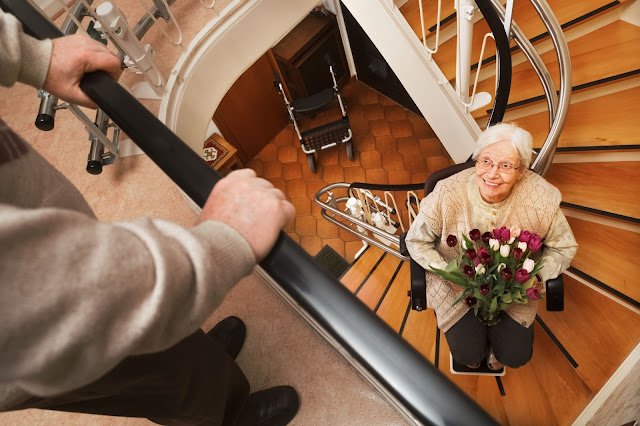Benefits of Homelifts: A Comprehensive Solution
Domestic Homelifts, also known as residential elevators, are designed to transport individuals and objects between different floors. These lifts operate vertically, providing a seamless and efficient experience without the need for stairs. Homelifts are typically larger and more spacious compared to stairlifts, accommodating wheelchairs, walkers, or multiple passengers comfortably.One of the primary advantages of homelifts is their ability to blend seamlessly into the architecture and interior design of a home. These lifts can be customised to match the aesthetics of your residence, ensuring they become an elegant and functional addition to your living space. Additionally, homelifts offer a higher weight capacity than stairlifts, making them suitable for individuals with varying mobility needs.
Furthermore, homelifts provide a safe and secure mode of transportation. They are equipped with advanced safety features, such as emergency stop buttons, backup power systems, and smooth acceleration and deceleration mechanisms. These features ensure a comfortable and worry-free experience for users.
Benefits of Stairlifts: A cheaper and Space-Saving Alternative
Curved and straight Stairlifts, on the other hand, are designed specifically for individuals who struggle with climbing stairs due to mobility limitations. These lifts are installed directly onto a staircase and have a motorised chair or platform that moves along a rail system. Stairlifts are an excellent option for people who wish to keep the use of their existing staircase for others, while enhancing accessibility for themselves.One of the main advantages of stairlifts is their space-saving design. They can be installed on either straight or curved staircases, allowing individuals to navigate between floors without compromising the overall layout of their homes. Stairlifts are particularly suitable for narrow or cramped staircases where a home lift installation may not be feasible.
Stairlifts also offer a cost-effective solution compared to homelifts. The installation and maintenance costs associated with stairlifts are generally lower, making them a more budget-friendly option for individuals seeking enhanced mobility within their homes.
However, it is important to note that stairlifts have some limitations. They may not be suitable for individuals with severe mobility issues or those who rely on wheelchairs or other mobility aids. Stairlifts also require individuals to transfer from their wheelchair or mobility device to the lift chair, which may not be safe practice for everyone.
Stairlifts vs Homelifts - The Verdict
Choosing between homelifts and stairlifts ultimately depends on your specific needs, budget, and the layout of your home. Homelifts offer a comprehensive solution, accommodating people with varying mobility needs and providing a seamless integration into the architectural design. Stairlifts, on the other hand, are a space-saving alternative that allows people to retain the use of their existing staircase. By now understanding the features and benefits of each option, you can now make an informed decision that best suits your requirements. Ensuring a safe and comfortable means of travel throughout your home!
*Collaborative post



0 comments